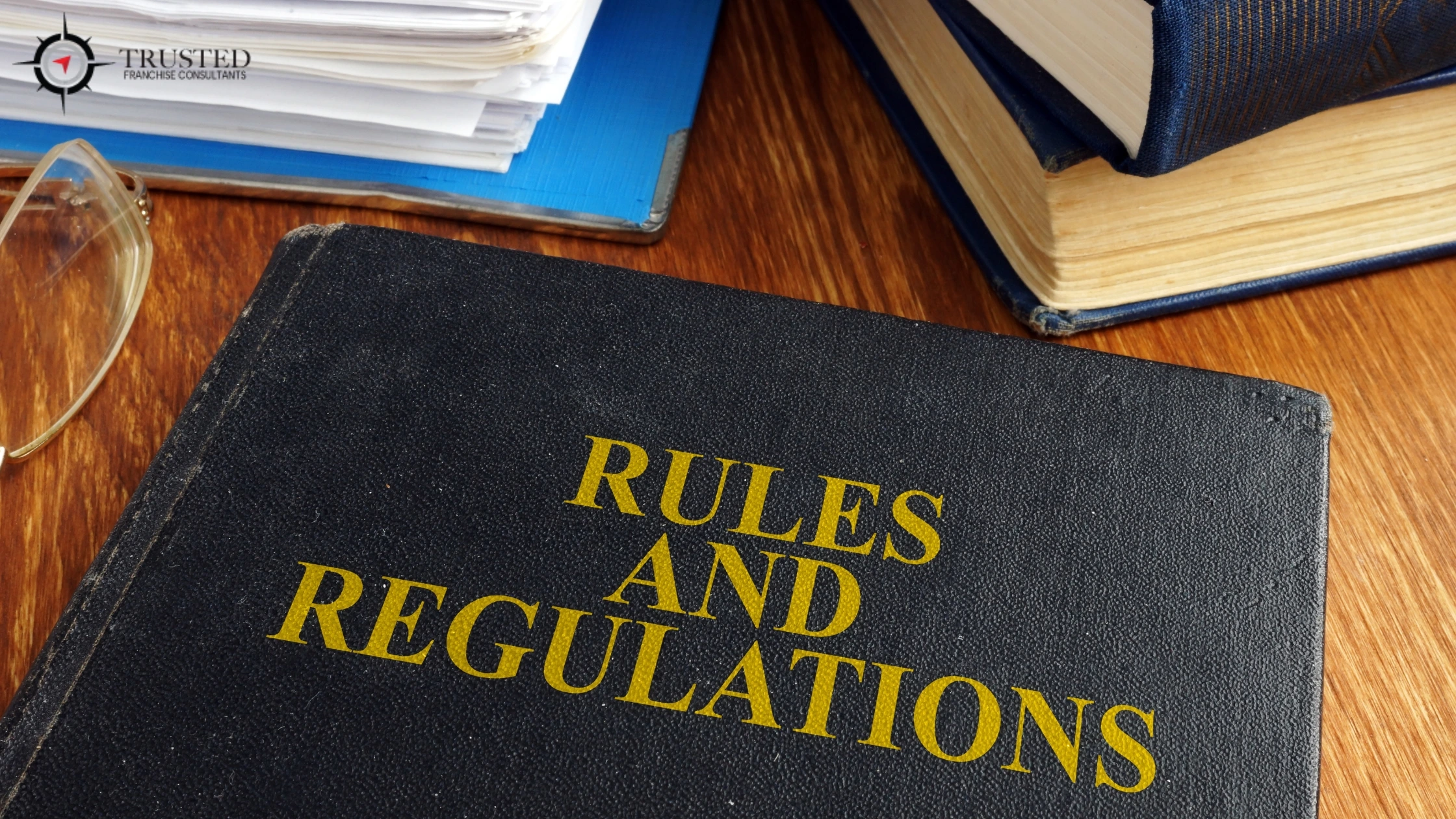Franchise Frequently Asked Questions
1. How much does it cost to start a franchise?
The cost can range from tens of thousands to hundreds of thousands of dollars depending on the franchise. Franchisors typically require an initial franchise fee.
2. What are the ongoing fees associated with franchising?
In addition to the initial fee, franchisees pay ongoing royalty fees, marketing fees, and other recurring expenses outlined in the franchise agreement.
3.What financing options exist for franchising?
Options include traditional small business loans, SBA loans, 401(k) financing, home equity loans, and franchisor financing programs.
4.How do I choose the right franchise for me?
Consider your skills, interests, lifestyle, ideal location, and investment level when choosing a franchise that aligns with your goals.
5.What are the pros and cons of franchising?
**Pros:** built-in brand recognition, training, and support.
**Cons:** less flexibility, monthly fees, and legal obligations.
6.What questions should I ask franchisors?
Ask about costs, training, support, territory, franchisee performance, litigation history, and exit options in the franchise agreement.

7.What are the steps for buying a franchise?
- Research options
- Get pre-qualified
- Review the FDD
- Attend a discovery day
- Consult an attorney
- Secure financing
- Negotiate the agreement
- How much control will franchisors have over my business?
The franchise agreement outlines the amount of control over operations, marketing, products, pricing, and more.
8.Can I sell my franchise in the future?
Transferability depends on the franchise agreement terms. Many include right of first refusal and transfer fees.
9.Are there any mistakes to avoid when exploring franchising?
Don’t sign any franchise agreement without fully understanding the FDD, consulting an attorney, and talking to existing franchisees.
10.How long does it typically take to break even with a franchise?
The break-even point varies by franchise, but it can range from several months to a few years. Factors include the initial investment, operating costs, and revenue generated.
Franchise Frequently Asked Questions – Trust Us
The experts at Trusted Franchise Consultants can answer your franchise frequently asked questions…and more. Let us help guide you through the franchise process.
11.What is the Franchise Disclosure Document (FDD)?
The FDD is a legal document that franchisors must provide to prospective franchisees. It contains detailed information about the franchise, including costs, obligations, and any litigation history.
12.Do I need prior industry experience to own a franchise?
While some franchisors prefer franchisees with industry experience, many offer comprehensive training programs. Passion, dedication, and business acumen are often more crucial than specific experience.

13.How do I evaluate the profitability of a franchise?
Review the FDD, especially the financial performance representations. Also, speak with current and former franchisees about their financial experiences and challenges.
14.What is the role of a franchise consultant?
A franchise consultant assists potential franchisees in finding and evaluating franchise opportunities. They can provide insights, resources, and guidance throughout the selection process.
15.Are there industry-specific regulations I should be aware of?
Yes, depending on the industry, there may be specific regulations and licenses required. For instance, food franchises may need health permits, while educational franchises might require accreditation.
16.How can I protect my interests when negotiating a franchise agreement?
It’s essential to consult with a franchise attorney who can review the agreement, suggest modifications, and ensure your interests are protected.
17.What is the difference between a single-unit and multi-unit franchise agreement?
A single-unit agreement allows franchisees to operate one franchise location, while a multi-unit agreement permits them to open multiple locations, often with a defined timeframe and territory.
18.How do franchisors support franchisees in their marketing efforts?
Franchisors often provide marketing materials, strategies, and national advertising campaigns. Some also collect a marketing fee to fund collective promotional efforts.
19.Can I negotiate the terms of the franchise agreement?
While some terms may be non-negotiable due to uniformity across the franchise system, there might be room for negotiation in areas like territory size, initial fees, or renewal terms.
20.What’s the difference between a franchise and a business opportunity?
While both offer chances to start a business, a franchise typically provides a proven business model, brand recognition, and ongoing support. A business opportunity often gives more operational freedom but lacks the structured guidance of a franchise.
21.How do I determine the potential market demand for a franchise in my area?
Conduct market research, analyze local demographics, study competitors, and consider factors like location accessibility and community needs.
22.Are there any ongoing training and support after the initial setup?
Most franchisors offer continuous training and support in areas like marketing, operations, and technology to ensure franchisee success and brand consistency.
23.What happens if a franchisee fails to meet the franchisor’s standards?
Franchisors may provide additional training or support. However, consistent failure to meet standards can lead to penalties or even termination of the franchise agreement.
24.Can I own franchises from different brands?
Yes, many franchisees diversify their investments by owning units from multiple brands. However, ensure there’s no conflict of interest and that you can manage multiple operations effectively.
25.How often do franchise models or operations get updated?
Franchisors periodically update operations to stay competitive. Franchisees are usually required to implement these changes, which can range from menu updates to store redesigns.
26.What is a franchise territory?
A franchise territory defines the geographical area where a franchisee can operate, ensuring they don’t face direct competition from fellow franchisees of the same brand.
27.How do I handle disputes with my franchisor?
Open communication is key. If unresolved, consider mediation. The franchise agreement may also outline specific dispute resolution procedures.
28.Are there any associations or organizations for franchisees?
Yes, organizations like the International Franchise Association (IFA) offer resources, networking opportunities, and advocacy for both franchisors and franchisees.
29.How do I exit or terminate my franchise agreement early?
The franchise agreement will outline exit procedures, which may include penalties, notice periods, and conditions for selling or transferring the franchise.
30.How does a franchise agreement handle renewals?
Most franchise agreements have a set term, after which they can be renewed. The renewal process, fees, and conditions will be outlined in the agreement.
31.Can I negotiate my franchise territory?
While franchisors aim to ensure territories are exclusive, the exact boundaries and potential for negotiation vary by franchisor and the specific market dynamics.
32.What are the typical challenges faced by new franchisees?
Challenges can include managing cash flow, adhering to franchisor standards, hiring and training staff, and understanding local market dynamics.
33.How does technology impact franchising?
Many franchisors provide proprietary software for operations, sales, and marketing. Staying updated with the latest tech can enhance efficiency and customer experience.
34.What role does branding play in franchising?
Branding is crucial as it provides instant recognition and trust. Franchisees benefit from the brand’s reputation but must also uphold its standards to maintain its integrity.
35.How do I handle competition with other franchises or local businesses?
Understanding your unique selling proposition (USP), offering exceptional service, and engaging in local marketing can help you stand out.
36.Are there specific tax implications for owning a franchise?
Franchisees can often deduct certain expenses, including the initial franchise fee, but it’s essential to consult with a tax professional familiar with franchising.
37.Can I make changes to the products or services offered at my franchise?
Typically, franchisees must adhere to the franchisor’s offerings. However, some franchisors may allow limited local adaptations or test new products at select locations.
38.How do I ensure my staff upholds the franchise brand standards?
Regular training, clear communication of expectations, and periodic evaluations can help maintain brand consistency.
39.What’s the impact of online reviews and social media on my franchise?
Online reputation is crucial. Positive reviews can boost business, while negative feedback can harm it. Engaging professionally and addressing concerns promptly is essential.
40.How do global economic trends affect franchising?
Global economic shifts can influence consumer spending, supply chain costs, and expansion opportunities. Franchisees should stay informed and adapt their strategies accordingly.
41.Can I introduce my own promotional activities for my franchise?
While franchisors often have national marketing campaigns, franchisees may be allowed to run local promotions with prior approval to ensure brand consistency.
42.How do I handle customer feedback specific to my franchise location?
Engage with customers, address their concerns, and use their feedback for improvement. Sharing positive feedback with the franchisor can also be beneficial.
43.What is the role of a franchise advisory council?
Such councils consist of elected franchisees who collaborate with the franchisor on decisions affecting the franchise system, ensuring franchisee voices are heard.
44.How do I manage supply chain challenges in franchising?
Franchisors often have preferred suppliers, but in case of disruptions, open communication with the franchisor and seeking alternative approved suppliers can help.
45.Are there eco-friendly or sustainable franchising opportunities?
Yes, many franchisors are adopting sustainable practices, and there are franchises centered around eco-friendly products and services.
46.How do cultural differences impact franchising in different countries?
Cultural nuances can affect product preferences, marketing strategies, and business operations. It’s essential to understand and respect local customs when franchising internationally.
47.What are the key performance indicators (KPIs) I should monitor in my franchise?
Common KPIs include sales growth, customer satisfaction, inventory turnover, and employee retention. The franchisor may also provide specific KPIs to track.
48.How do I maintain a work-life balance as a franchisee?
Setting clear boundaries, delegating tasks, using technology for efficiency, and scheduling regular breaks can help manage the demands of franchise ownership.
49.Can I collaborate with other franchisees for joint marketing or events?
Collaborative efforts can be beneficial but always consult with the franchisor to ensure brand consistency and avoid territorial conflicts.









